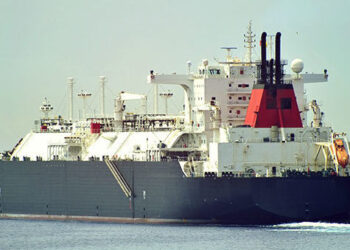Design, operation, maintenance and training for natural gas marine fuel systems
![]() The inaugural meeting of the Natural Gas Marine Fuel Safety Advisory Group was held in London on 10 July 2012. The cross-industry group has been established by the liquefied gas shipping industry to advise on the design, operation, maintenance and training for natural gas marine fuel systems.
The inaugural meeting of the Natural Gas Marine Fuel Safety Advisory Group was held in London on 10 July 2012. The cross-industry group has been established by the liquefied gas shipping industry to advise on the design, operation, maintenance and training for natural gas marine fuel systems.
The terms of reference of the new group cover the design, operation and safety of liquefied natural gas (LNG) bunkering logistics spectrum, from bulk storage, bunker vessel design and operations and LNG transfer arrangements to shipboard gas containment and handling systems. All the LNG supply chain stakeholders are encompassed in the group’s membership, from shipowners, gas companies, terminal operators and engine manufacturers to class societies, naval architects, research establishments, training organisations and regulatory agencies.
The first meeting of the Advisory Group was organised by the Society of International Gas Tanker and Terminal Operators (SIGTTO), the industry association responsible for bringing a global consensus to the promotion of industry best working practices and high standards of safety in the storage, handling and seaborne transport of liquefied gases.
The use of LNG as marine fuel, as a means of complying with the increasingly strict IMO requirements governing ship emissions, is not only opening up a major new energy market but also introducing technological challenges for the shipping industry. LNG bunkering will bring a wide cross-section of ship and port operators into contact with a fuel that requires careful handling.
An impressive safety regime has been developed by the gas shipping and storage industry to cope with the hazards posed by a cryogenic liquid at -162˚C and its flammable vapours. Evidence of the success of this LNG regime is given by the exemplary safety record that gas carrier and terminal operators have built up over the past 50 years. This safety record provides the industry with its license to operate.
The establishment of the Natural Gas Marine Fuel Safety Advisory Group reflects the gas shipping industry’s desire to pass on the body of knowledge it has accumulated to a rapidly emerging LNG bunkering community to ensure a continuation of the excellent safety record. Although there are currently only a handful of LNG-powered vessels that are not LNG carriers in service, the order book is growing and LNG bunkering operations are poised to blossom.
Going forward, the Natural Gas Marine Fuel Safety Advisory Group will examine current proposals, operational procedures and training practices in projects proposing the use of LNG as a bunker fuel.
From this work the members can then develop a position and offer advice where appropriate, referencing current codes, standards and industry guidelines wherever possible. If serious concerns not believed to be adequately addressed are identified, the Advisory Group will lobby flag states and other relevant bodies to draw attention to the problem and offer possible solutions. This process may include the preparation of submissions to IMO.
Source: SIGTTO






























































